Ukraine's Parliament ousts defense minister
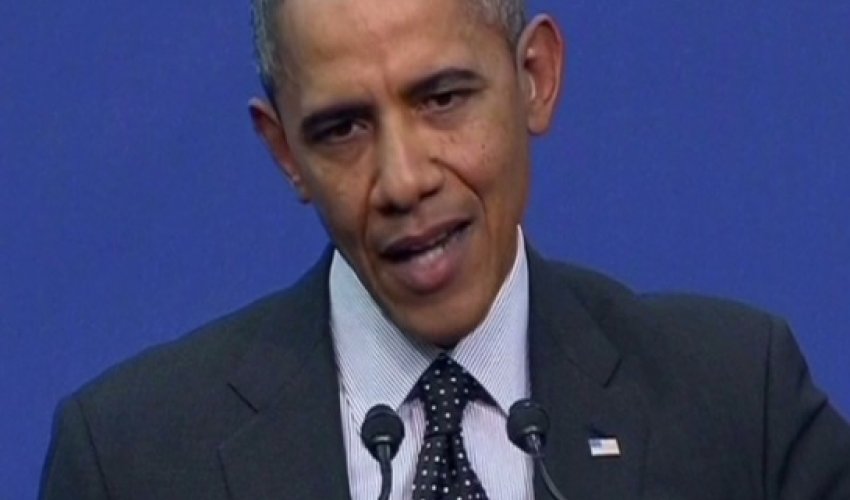
Ukrainian lawmakers on Tuesday dismissed acting Defense Minister Ihor Tenyukh over his handling of the Crimea crisis following Russia's annexation of the Black Sea peninsula.Parliament voted to appoint Col.-Gen. Mykhailo Koval as his successor. Koval's name was submitted for parliamentary approval by acting President Oleksandr Turchynov.Ukrainian news agency Ukrinform said Tenyukh had tendered his resignation."Knowing that someone does not like what I did as acting defense minister, as well as due to disagreements in the issues that were offered from the first day until present regarding the Autonomous Republic of Crimea ... I ... am handing in my resignation," it quoted him as saying.Tenyukh was Ukraine's acting defense minister as troops wearing unmarked uniforms -- which the West said were Russian forces -- surrounded Ukrainian bases in Crimea this month. Russia annexed Crimea last week after a controversial referendum that Ukraine and the West say was illegal.The new leaders in Kiev, who took office after months of protests forced pro-Moscow President Viktor Yanukovych from office, say Crimea is still a part of Ukraine.In an interview with American broadcaster PBS, Prime Minister Arseniy Yatsenyuk said Ukraine is struggling to maintain a fighting capability after it was "deliberately dismantled" under Yanukovych."What we need is support from the international community. We need technology and military support to overhaul the Ukrainian military and modernize -- to be ready not just to fight, but to be ready to win," Yatsenyuk said.With an estimated 30,000 Russian troops now positioned near Ukraine's eastern border, Yatsenyuk repeated his pledge to defend Ukrainian territory. His government ceded Crimea without a shot in order to demonstrate to the world that Russia was the aggressor, he said -- but if Moscow moves against another portion of Ukraine, the duty of all Ukrainians is "to protect our country," he said. "We will fight."Russia snubbed at summitRussia insists its actions are legitimate. Crimea belonged to Russia until 1954 when it was given to Ukraine, which was then part of the Soviet Union. The region has a majority ethnic Russian population and other long historic ties to Russia.Speaking at The Hague on Tuesday, U.S. President Barack Obama said Russia had a way out of tensions over the crisis: Negotiate with Kiev and be prepared to "act responsibly" and respond to international norms, such as respecting Ukraine's territorial integrity.If Russia doesn't act responsibly, "there will be additional costs" that could hurt the global economy but will affect Russia most of all, Obama said at the Nuclear Security Summit in the Netherlands.He said that Russia's annexation of Crimea "is not a done deal" because it's not internationally recognized. But he acknowledged that the Russian military controls Crimea, and said the world can make sure, through diplomacy and sanctions, that Russia pays a price."I think it would be dishonest to suggest there is a simple solution to resolving what has already taken place," Obama said, dismissing any suggestion that Russia's intervention in Crimea -- and hints that it could intervene in Ukraine to support Russian speakers -- was similar to NATO's intervention in Kosovo.Obama also said Russia was more isolated now than it was roughly five years ago during its war with the former Soviet republic of Georgia, and more than it was during most of the 20th century, when it was part of the Soviet Union.Moscow has doggedly pursued its own course, even as Western leaders have denounced its actions as violations of Ukraine's sovereignty and a breach of international law.In what has become the biggest East-West confrontation since the Cold War, the United States and European Union have imposed visa bans and asset freezes on some of Russian President Vladimir Putin's closest political and business allies. Russia responded with its own list of sanctions against a number of U.S. lawmakers and officials.The G7 group of leading industrialized countries has condemned both the Crimean vote to secede and Russia's annexation of Crimea. Russia has now been excluded from what was the G8. Moscow had joined the G7 group in 1998 to form the G8.Russia initially reacted to the snub by saying "the G8 is an informal organization that does not give out any membership cards and, by its definition, cannot remove anyone."But on Tuesday, the Kremlin said it wants to maintain contact with G8 partners."As for the contacts with the G8 countries, we are ready for them, we are interested in them, but the unwillingness of other countries to continue the dialogue, in our view, is counterproductive both for us and our partners," presidential spokesman Dmitry Peskov told Russia's state ITAR-Tass news agency.Ahead of the G7 gathering, a representative for British Prime Minister David Cameron said that no G8 meeting would take place in Russia this year as previously planned.Concerns over military buildupAlso at the nuclear summit Monday, Russian Foreign Minister Sergey Lavrov met his Ukrainian counterpart, Andrii Deshchytsia, and, separately, U.S. Secretary of State John Kerry.During his meeting with Lavrov, Kerry expressed concern about Russian troops amassed on the Ukrainian border, U.S. State Department spokeswoman Marie Harf said.Other officials, including NATO's top military commander, have already expressed concern about the buildup of Russian forces on Ukraine's border.Russia has added 10,000 troops, along with air defense artillery and wheeled vehicles, to its positions near Ukraine's eastern border in the last week to 10 days, according to a U.S. official with knowledge of the situation. Russian forces in the vicinity now total 30,000, according to U.S. estimates.Russia had maintained a level of about 20,000 troops in the area but began reinforcing and adding to their positions in recent days, the official said, leading to U.S. concern that they are positioned to move into Ukraine if and when they are ordered to do so.Separately, a senior U.S. defense official told CNN that Russia "has enough troops that we believe they could move against Ukraine at any time now."The official emphasized the United States still does not know Russia's intentions on the border despite statements by its defense minister that the troops are there only for exercises.U.S. intelligence also indicates the Russian forces are positioned possibly to go after three Ukrainian cities -- Kharkiv, Luhansk and Donetsk -- to establish a "land bridge" of access into Crimea. Russian forces have moved so close to the border, there would be no warning time, and the United States would likely only see an incursion as it was happening.Far-right group leader killedSeparately, a Ukrainian leader of a far-right group was shot dead in what Ukraine's Interior Ministry called a shootout with police.Ukrainian special forces were trying to arrest Oleksandr Muzychko, better known as Sashko Biliy, in a cafe in the western city of Rivne, the ministry said. Muzychko was wanted "for his criminal background and illegal carrying of weapons," the ministry said."He tried to escape and used gun shots against the police," the ministry said. "Shots were fired in response, injuring Muzychko, who died soon after."Muzychko was a leader of Right Sector, a far-right group prominent in the recent anti-government protests. Three others were arrested and taken to Kiev, the ministry said.A Ukrainian lawmaker, Oleksandr Doniy, whose constituency is in Rivne, gave a different version of events. In a post on his Facebook page, he said two vehicles had forced Muzychko's car to stop, and he had then been dragged into one of the other cars."Then they threw him out of the car on the ground, with hands handcuffed behind his back, and shot twice in his heart," Doniy wrote, without saying where he got his information.(CNN)ANN.Az
Similar news
Similar news
Latest news 
More news 
























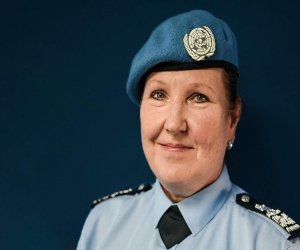
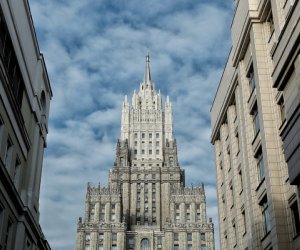

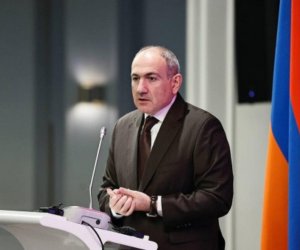
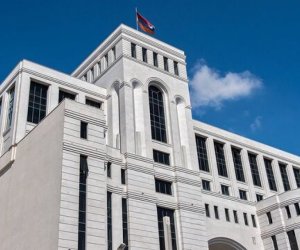
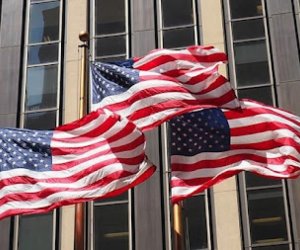
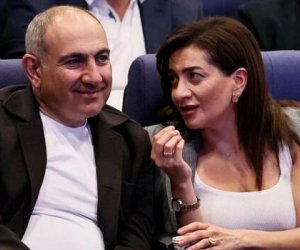
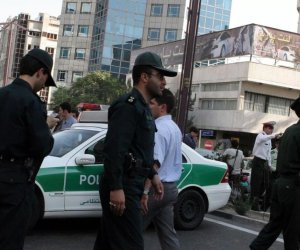



 Photo
Photo 



 Video
Video 

